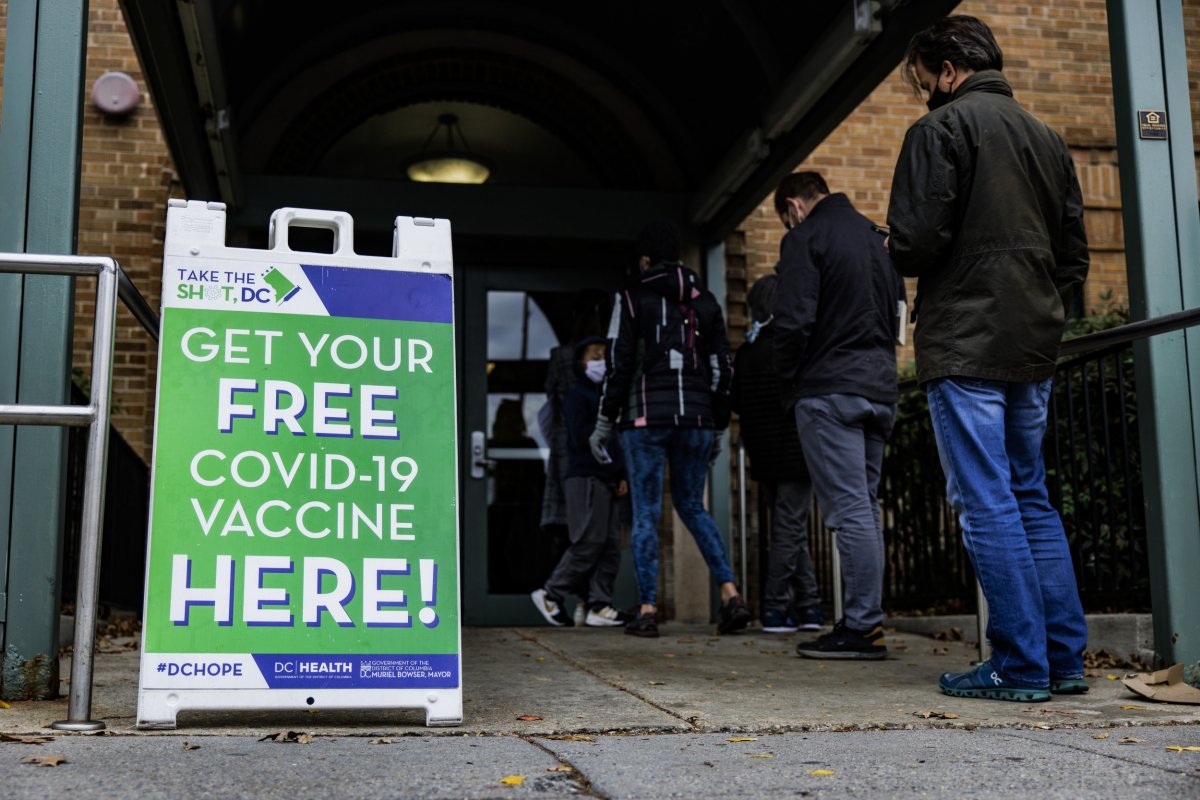The World Health Organization (WHO) has said that as of Friday, there have been no fatalities linked to Omicron but warned it could take several weeks to determine how infectious the new COVID-19 variant is.
The WHO's assurance comes as the new variant first detected in South Africa last week has now been recorded in 38 countries. In the United States, at least 29 cases of Omicron across 11 states have been reported.
These are California, Nebraska, New York, Maryland, Minnesota, Missouri, Utah, Pennsylvania and Hawaii, CBS News reported. There was also an infection in New Jersey of a Georgia resident.
The WHO said it could also take time to investigate the effectiveness of treatments and whether it causes more severe illness. The organization's emergencies director Michael Ryan said it intended "to get the answers that everybody out there needs." Newsweek has contacted the WHO for further comment.

Although nearly 60 percent of Americans are fully vaccinated against COVID-19, according to the U.S. Centers for Disease Control and Prevention (CDC), there are concerns the heavily mutated Omicron variant could reverse that progress on immunity.
Dr. Anthony Fauci, President Joe Biden's chief medical advisor, tried to assuage concerns about Omicron, with evidence showing it spreads twice as fast as the Delta variant.
He told a White House briefing Friday that studies show that booster shots increase antibody protection against a range of variants.
He said that "there's every reason to believe" that those who are vaccinated and have received a booster "have at least some degree of cross-protection, very likely against severe disease, even against the Omicron variant."
Most Omicron cases that have appeared in the U.S. have been in fully vaccinated people who only experienced mild symptoms.
However, South African scientists have published a study which found Omicron posed a higher risk of reinfecting those who had caught COVID than past variants.
Cases in South Africa have more than tripled in four days while in Norway in what is believed to the world's biggest outbreak, at least 60 people who attended a Christmas party tested positive for the strain this week.
Dr. Bruce Walker, an immunology professor at Harvard Medical School and the Massachusetts Institute of Technology, said in the worst-case scenario, Omicron might be more transmissible and efficient at making copies of itself and thus more dangerous.
However, it might end up being more transmissible but less dangerous and can even offer protection against future infection with a similar coronavirus. "That's very much wishful thinking right now," Walker told USA Today.
Uncommon Knowledge
Newsweek is committed to challenging conventional wisdom and finding connections in the search for common ground.
Newsweek is committed to challenging conventional wisdom and finding connections in the search for common ground.
About the writer
Brendan Cole is a Newsweek Senior News Reporter based in London, UK. His focus is Russia and Ukraine, in particular ... Read more
To read how Newsweek uses AI as a newsroom tool, Click here.








